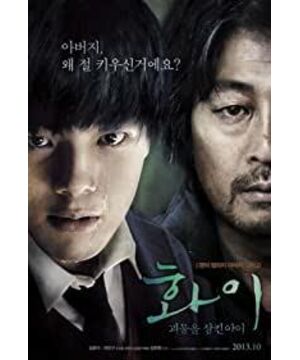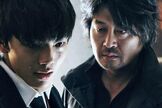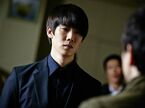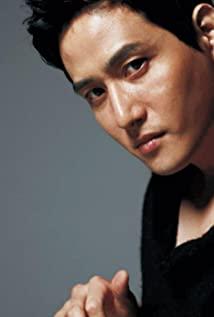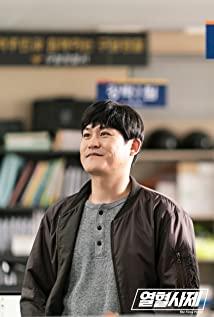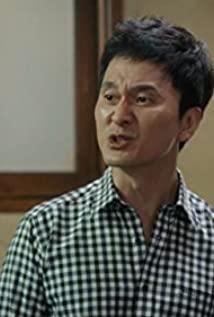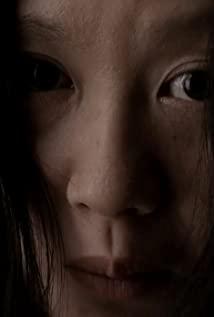is a relatively simple movie in terms of storyline.
But the most impressive thing about this movie: one is the bottomless evil of human nature; the other is the straightforward and bloody action scenes.
And it's human nature worth digging deeper into. In this story, everyone is a martyr before it. There is no reason for the evil of "Bai Mei", evil for evil's sake. They recklessly and cruelly enjoy the pleasure it brings.
The typical one is Shuotai and the other is Huayi. Both have similar mental illnesses, and the film uses monsters to shoot. This is where the title of the film comes from.
[Shuotai]
Shuotai's evil has long been explained, the stubborn disease in his heart cannot be overcome, the pain cannot be resolved, and finally resorts to violence. When evil became his concept of doing things, he changed to use evil to measure all things in the world. harm the innocent. His evil is always there, and rightfully so. This constitutes the premise of the subsequent development of the story.
Said he was evil for evil. It's because he's not interested in stealing money, and it's not out of kindness to let the visually impaired masseuse go. Because in the end he still killed the masseuse himself. From beginning to end, he never showed any outwardly human kindness to anyone.
Everyone is controversial about whether he has any love for Hua Yi. Hua Yi finally wanted to kill him in revenge, and he also had an expression of indifference. But you can't tell if it's tolerance for Huayi or indifference to death. Except for the script creators themselves, all interpretations are one-sided speculations.
Praise for Hua Yi's talent in marksmanship, scolding for his weakness when he killed the first time, and a heart-wrenching view of him. And Hua Yi's indifference when he wanted to kill himself. You can't just insist that he has feelings for Hua Yi from the last few times he spared Hua Yi and his anger and roar when the police shot Hua Yi at the end.
It is true that these are the necessary conditions to reflect his love for Huayi,
but they do not constitute sufficient conditions to deduce his love for Huayi.
Hua Yi is more like an "experimental product" to him.
In the end, Shuotai escaped after the factory war and had the opportunity to kill Huayi instead of killing Huayi's mother in a nursing home. This decision has a deeper meaning at least for Shuotai.
Shuotai can be said to be a typical representative of a neglected group in every society. That is, people with mental illness, but because they are not prominent, they are often ignored. And because they don't get attention, their pain can't be properly guided and resolved, making them more and more miserable. They may vent their inner pain by resorting to violence at the slightest thought or by being seduced by a malicious person. Either to yourself or to others, causing tragedy.
Just as Shuotai has an inexplicable hatred for Ren Hengze (Hua Yi's biological father) who selflessly helped him in his youth. It's just because when I was suffering so much, I hated that the other party could live so happily and kindly, so I felt revenge for it.
Persistent fear puts a person in the throes of prolonged mental alertness and intense struggle. Fear corrupts life and corrupts people's hearts. It is a powerful pessimistic force that often casts a shadow over the future. If a person harbors any kind of fear, his mind is bound to be affected, and this unsound state of mind will slowly erode human nature and become the master of demons. (Reprinted)
[Hua Yi]
Many people think that Hua Yi killed these "dads" through revenge and devoured his own demons. He expressed his support for this and believed that Huayi finally defeated human nature. Should this really be recognized?
In fact, Hua Yi did not get rid of the evil of human nature. He also took the same way as Shuotai to vent his inner pain. Of course, it is undeniable that the story still reveals Huayi's natural yearning for kindness and beauty.
Such as the failure caused by his painful struggle when he tried to kill for the first time, his love for girls. But only so far. Even a girl is just an embellishment. When Shuotai killed Chang Hao, a corrupt policeman who was ambushed in the parking lot of a nursing home, there was no scene of explaining the subsequent whereabouts of the girl who was detained by Chang Hao. It can be seen that this is not the top priority of the film. gist. Just "auxiliary material".
They show the good side of human nature, but they are only short-lived.
Hua Yi has always been a teenager, so his human nature is not complicated, everything is driven by love and hate, which can be seen from the pain of his struggle and hesitation in the process of revenge.
And he chose to kill them to vent the hatred in his heart. This is undoubtedly the result of education.
You can see how important education is.
Because education is a process of feedback, if he is part of the family, he will give feedback to the family. If he is part of a social group, then he will eventually give back to the whole society.
In the final scene, Hua Yi left with a gun on his back.
Nor did he conquer humanity.
The evil of human nature is always the main theme of this film.
The actions and choices of many characters in the film are worth pondering and exploring. But not out of trying to figure out the personal thoughts of the screenwriters. Instead, think about why people do this from the root of human nature.
Don't hate them, reflect on human nature.
View more about Hwayi: A Monster Boy reviews


